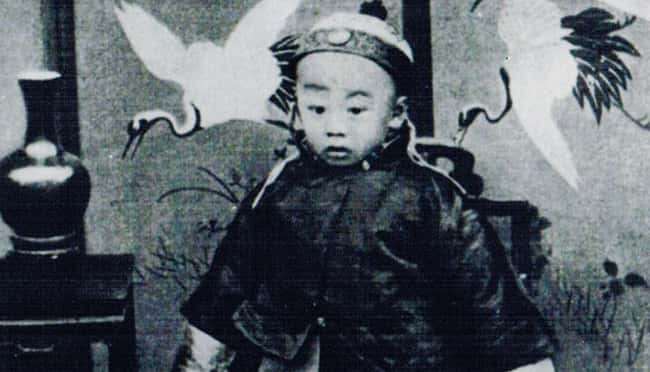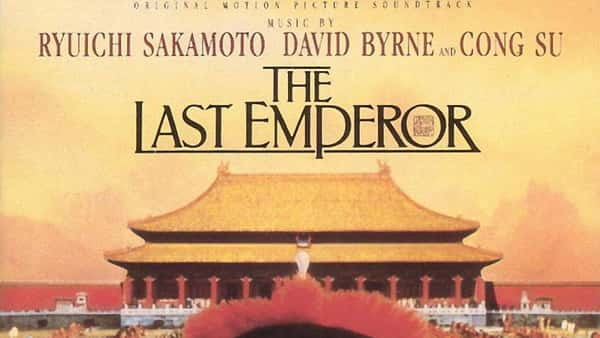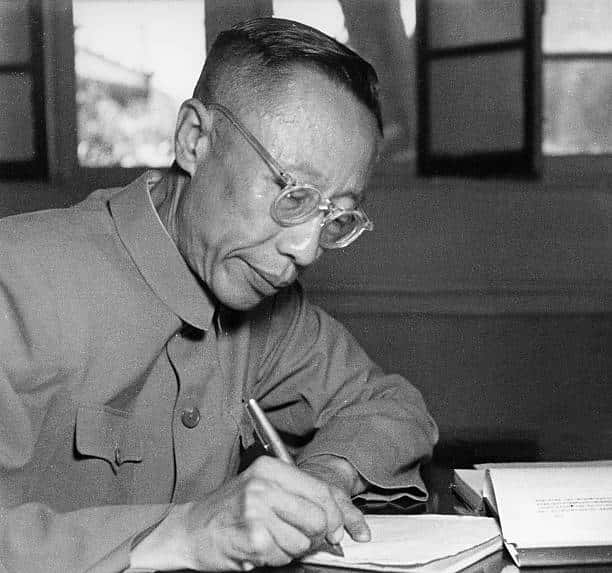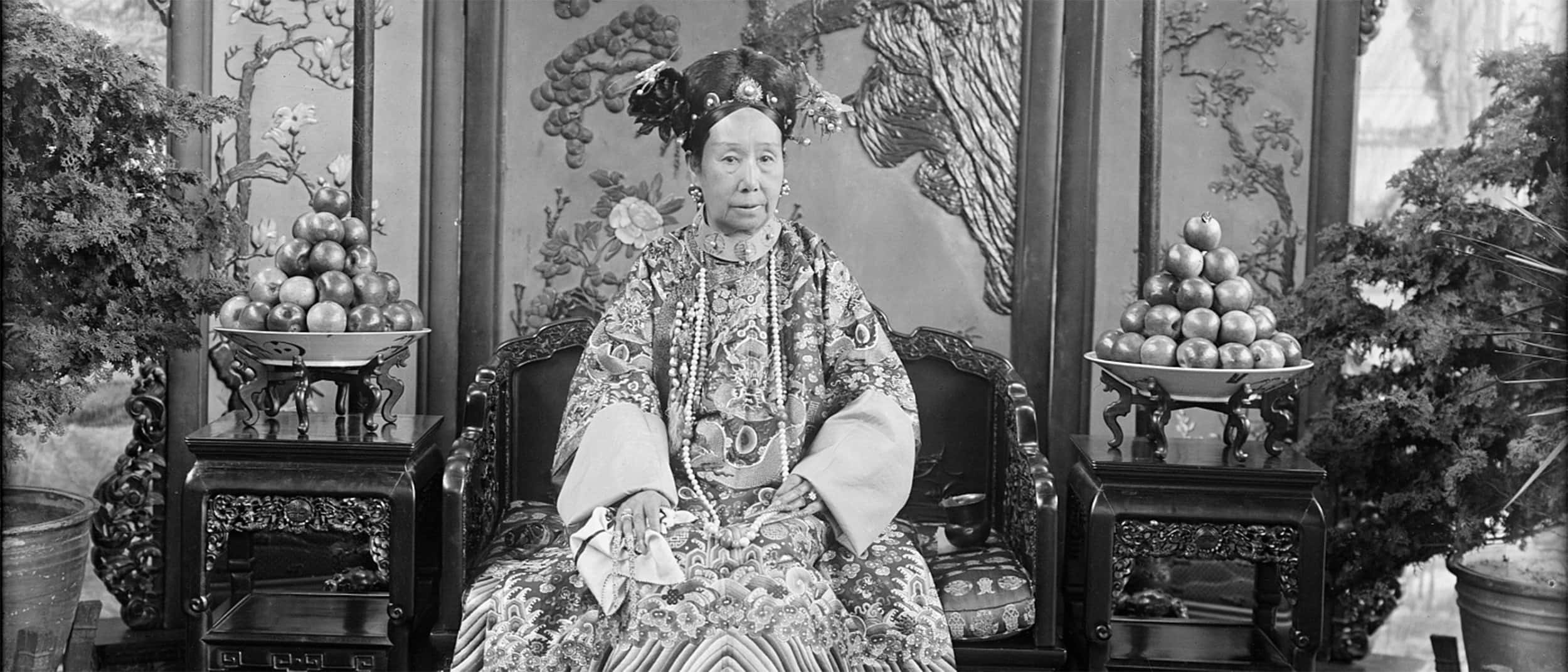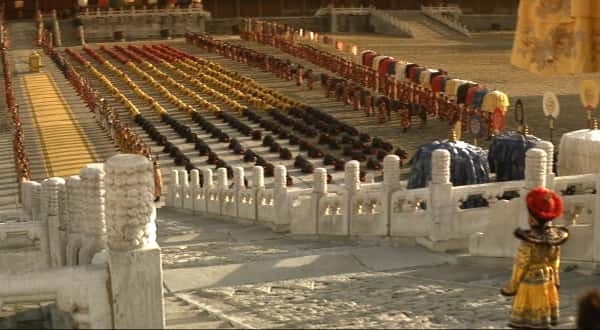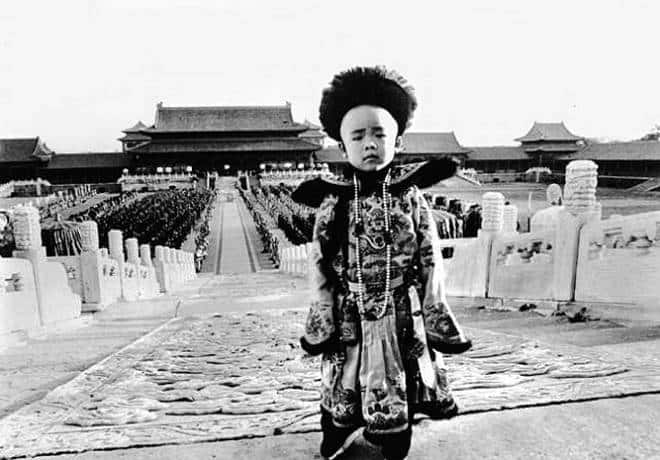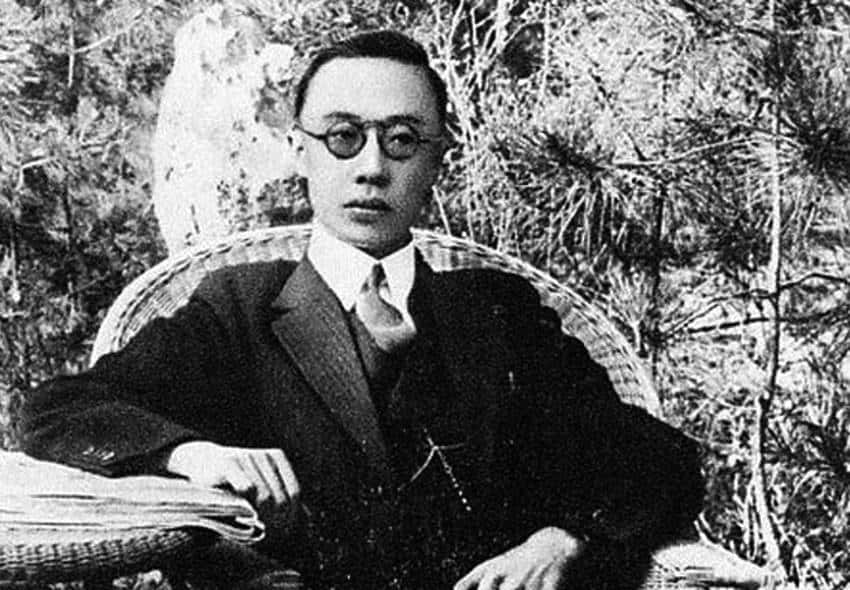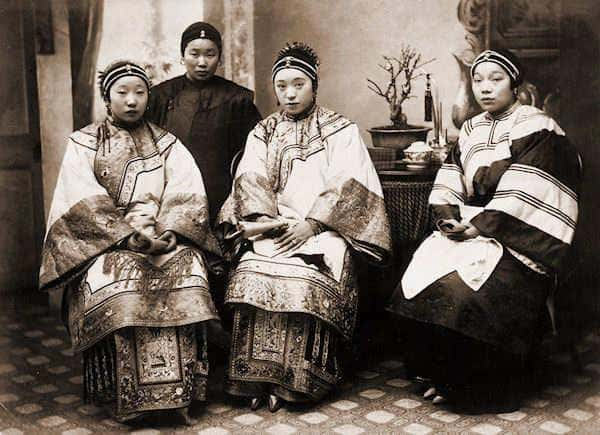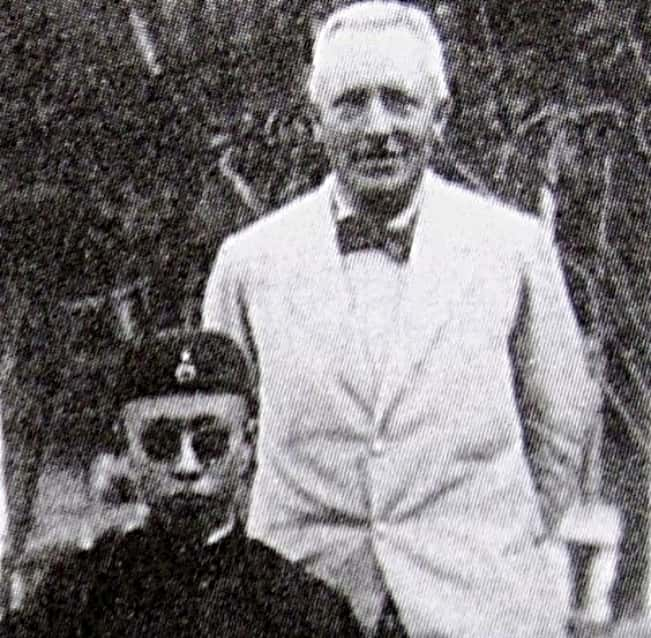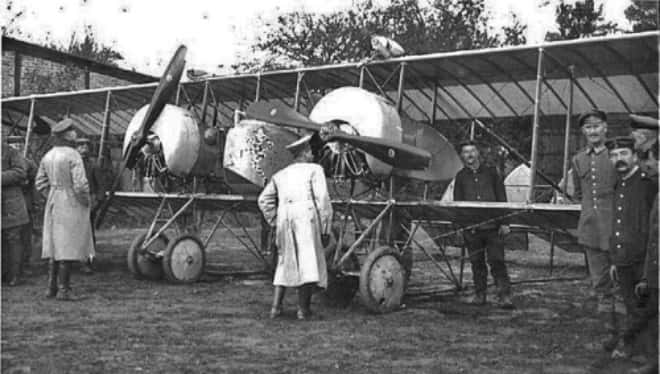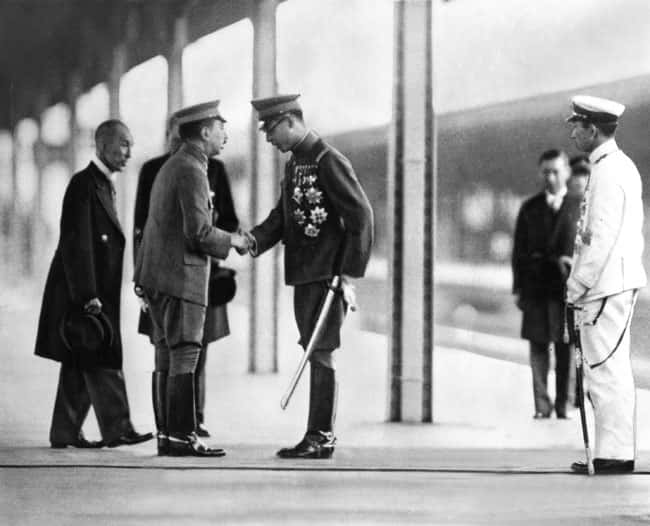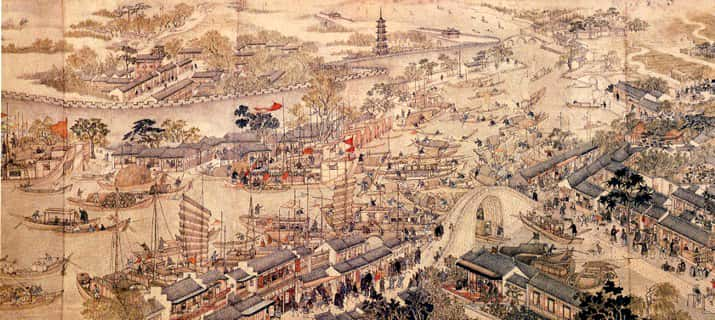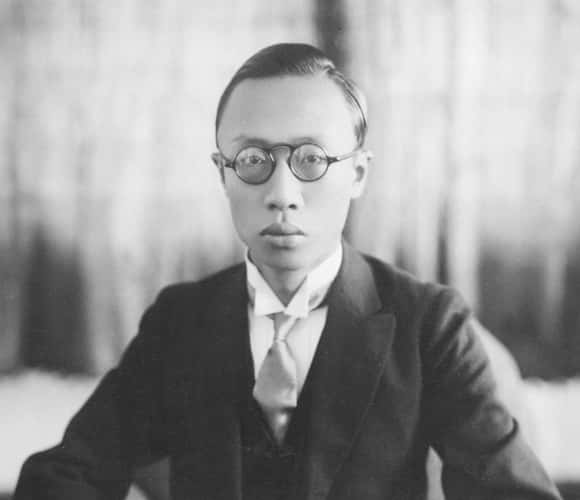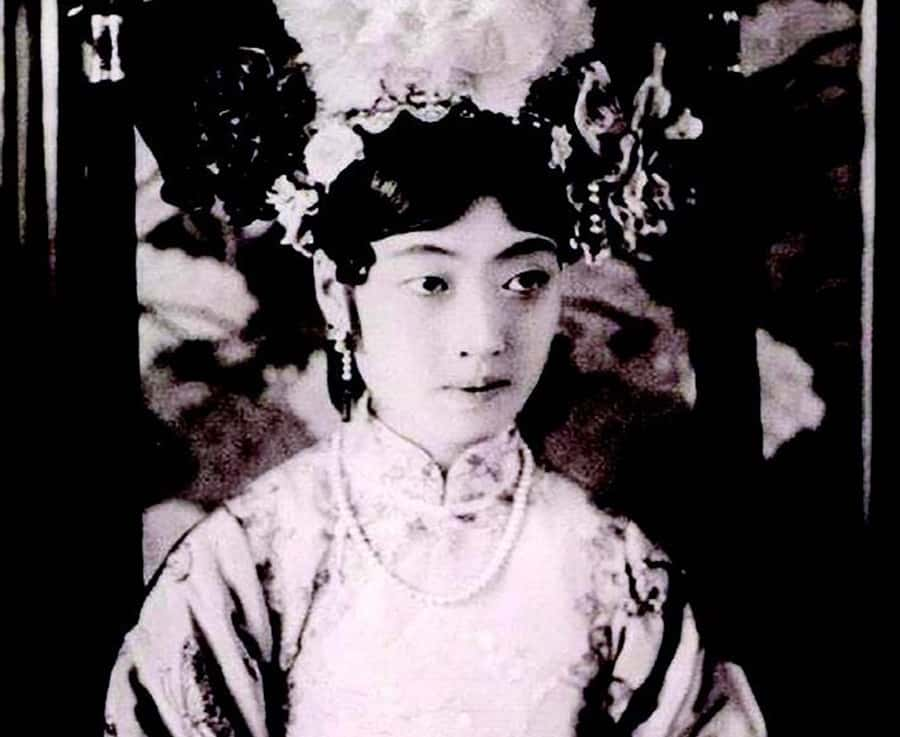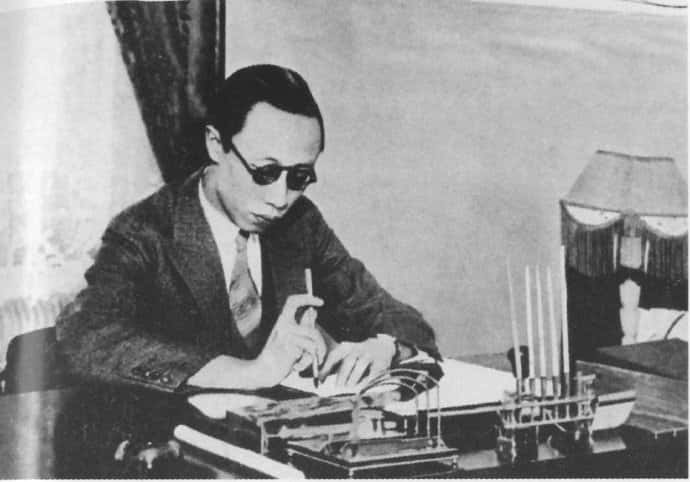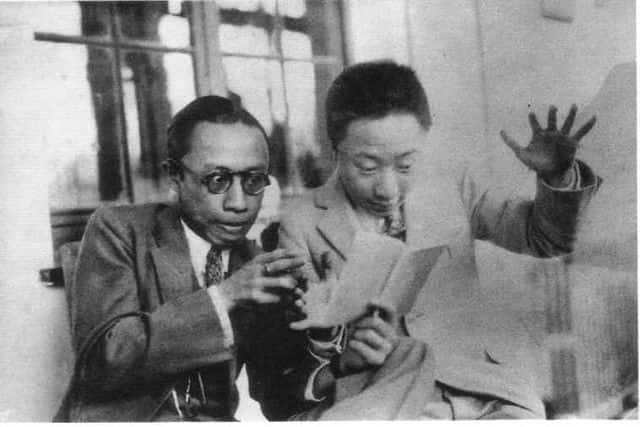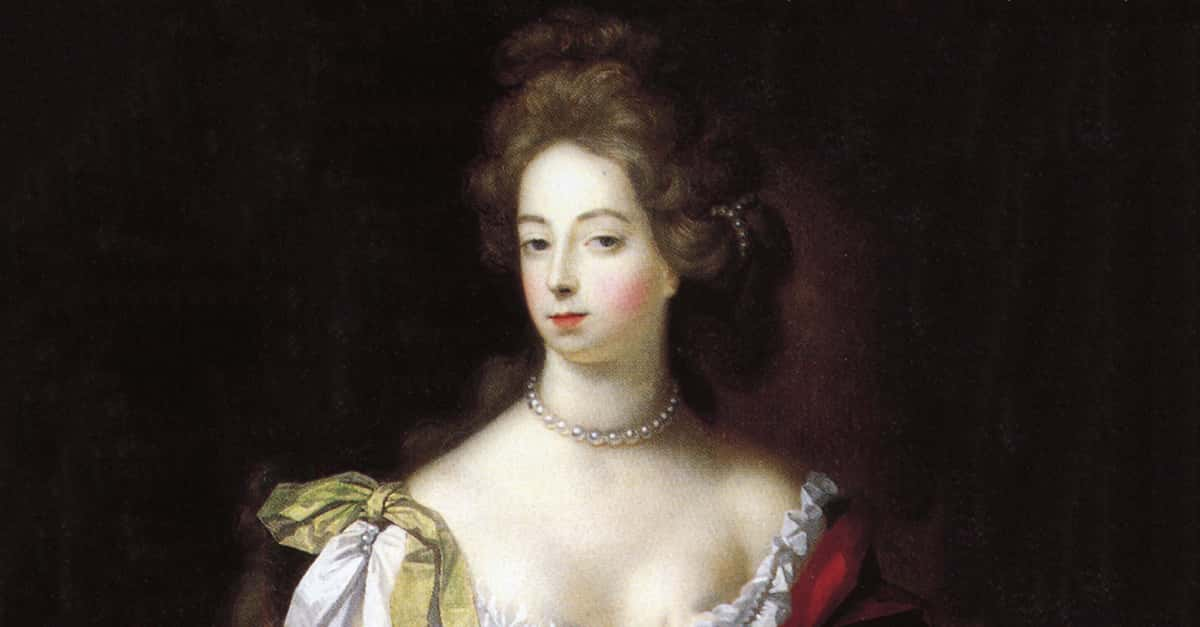It was the end of a way of government which had lasted for millennia in China. The many Chinese dynasties of emperors throughout history ended with Pu Yi, to be replaced by the modern China of today. A lot went into this final destruction of the imperial rule—which, even by Pu Yi’s time, didn’t have much power over China at all—and Pu Yi was at the center of it from when he first became emperor as a child. His story was so unique and rich that it has inspired study, speculation, and even an epic film adaptation by Bernardo Bertolucci. So who was this last emperor? What did he go through? What was it like to be the last emperor of China during such tumultuous times? Find out more about Pu Yi below.
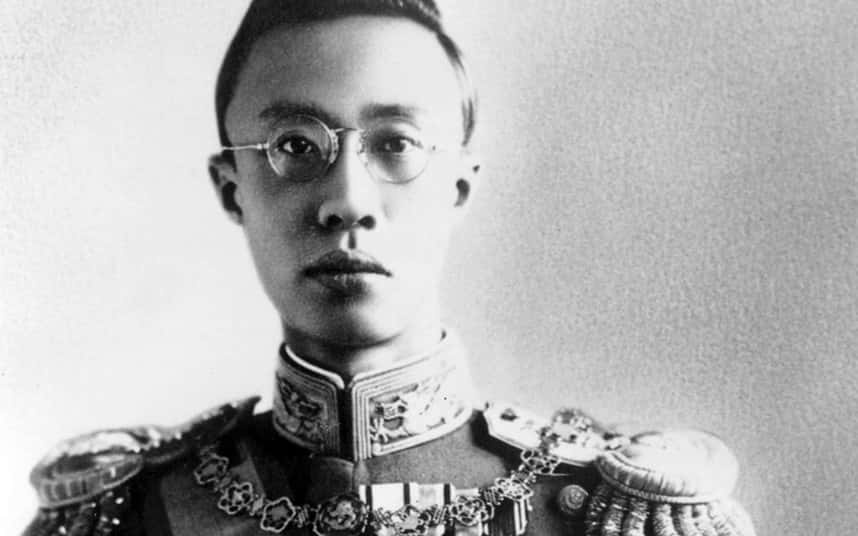 telegraph.co.uk
telegraph.co.uk
Pu Yi Facts
42. This Won’t Be Traumatizing at All!
Pu Yi was a toddler in 1908 when palace officials came to his parents, known as Prince and Princess Chun, without any forewarning. They were there to bring Pu Yi to the Empress Dowager Cixi. Reportedly, Pu Yi’s parents said nothing as their screaming child was forcibly taken by attendants and swept away.
41. I’ll Take That One!
A lesser known name which Pu Yi used is the English name “Henry.” Inspired by the teachings of Reginald Johnston (more on him later), Pu Yi asked for a list of the English kings and chose the one he liked best for his English name.
40. Mother Figure
The only person who was allowed to come along with Pu Yi when he was taken to the Forbidden City was his wet-nurse, Wang Wen-Chao, and was only allowed because she alone could calm the infant Pu Yi down by suckling him. Because Pu Yi didn’t see his biological mother for seven years, he developed a close bond with Wen-Chao, and kept contact with her well into his teenage years.
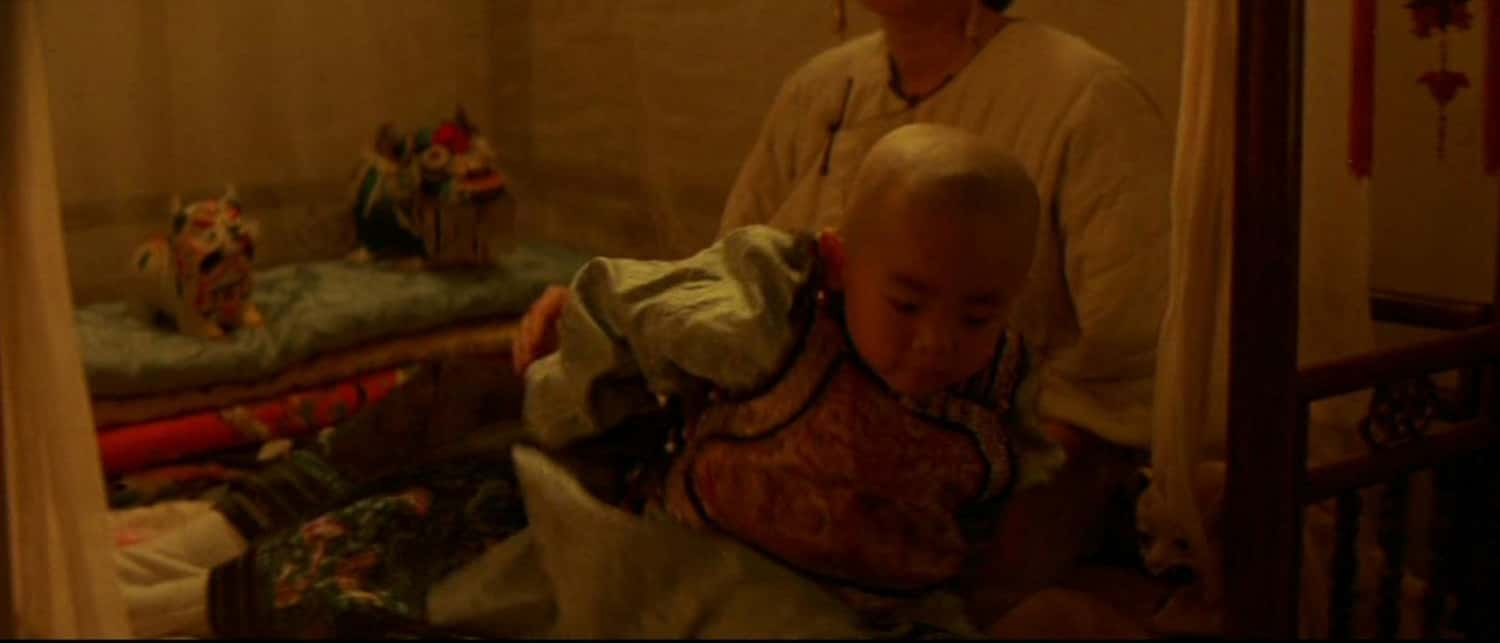 Prop Store - Ultimate Movie Collectables
Prop Store - Ultimate Movie Collectables
39. Bringing Home the Gold
The famous biopic of Pu Yi’s life (fittingly titled The Last Emperor) won nine Oscars at the 1988 Academy Awards, including Best Picture, Best Director, Best Screenplay, and Best Cinematography.
38. Speak Up!
Despite his background, Pu Yi couldn’t speak a word of the Manchu language. Pu Yi spoke Mandarin and thanks to the efforts of his tutor, he could also understand English. His preferred method of communication was a mix of both those aforementioned languages.
37. He Seems Pleasant!
According to Pu Yi himself, he was brought to the Empress Dowager Cixi on her deathbed. However, the toddler was so disruptive and terrified that Cixi had him sent away after a few moments. Surprisingly, this awkward first meeting didn’t stop her from naming Pu Yi as the next Emperor.
36. A New First
The Last Emperor was the first film from the Western world to receive permission from the People’s Republic of China to film inside the Forbidden City, where the real Pu Yi had spent his youth.
35. It Was Over Before It Really Began
While Pu Yi was a child, he was forced to abdicate his power as the emperor due to the Xinhai Revolution. Despite its singular-sounding title, it actually covered a time period of many small revolts and uprisings which led to the overthrow of the imperial family. Pu Yi abdicated his power on February 12, 1912, at the age of six.
34. Didn't Your Parent's Teach You--Oh, Never Mind
As the child emperor, Pu Yi was served so effectively that he never even had to open a door, clothe himself, or even “blow air into his soup to cool it.” Even well into his adulthood, after he’d finally begun learning how to look after himself, he was noted to continually forget to do simple things like “flush the toilet” or turning off the water when he was done washing his hands.
33. It’s Too Good a Title to Use Once!
Between 1986 and 1987, two different films were released about Pu Yi’s life, and both were titled The Last Emperor! The 1986 film was a Hong Kong production while the 1987 film was the version which won Best Picture at the Oscars.
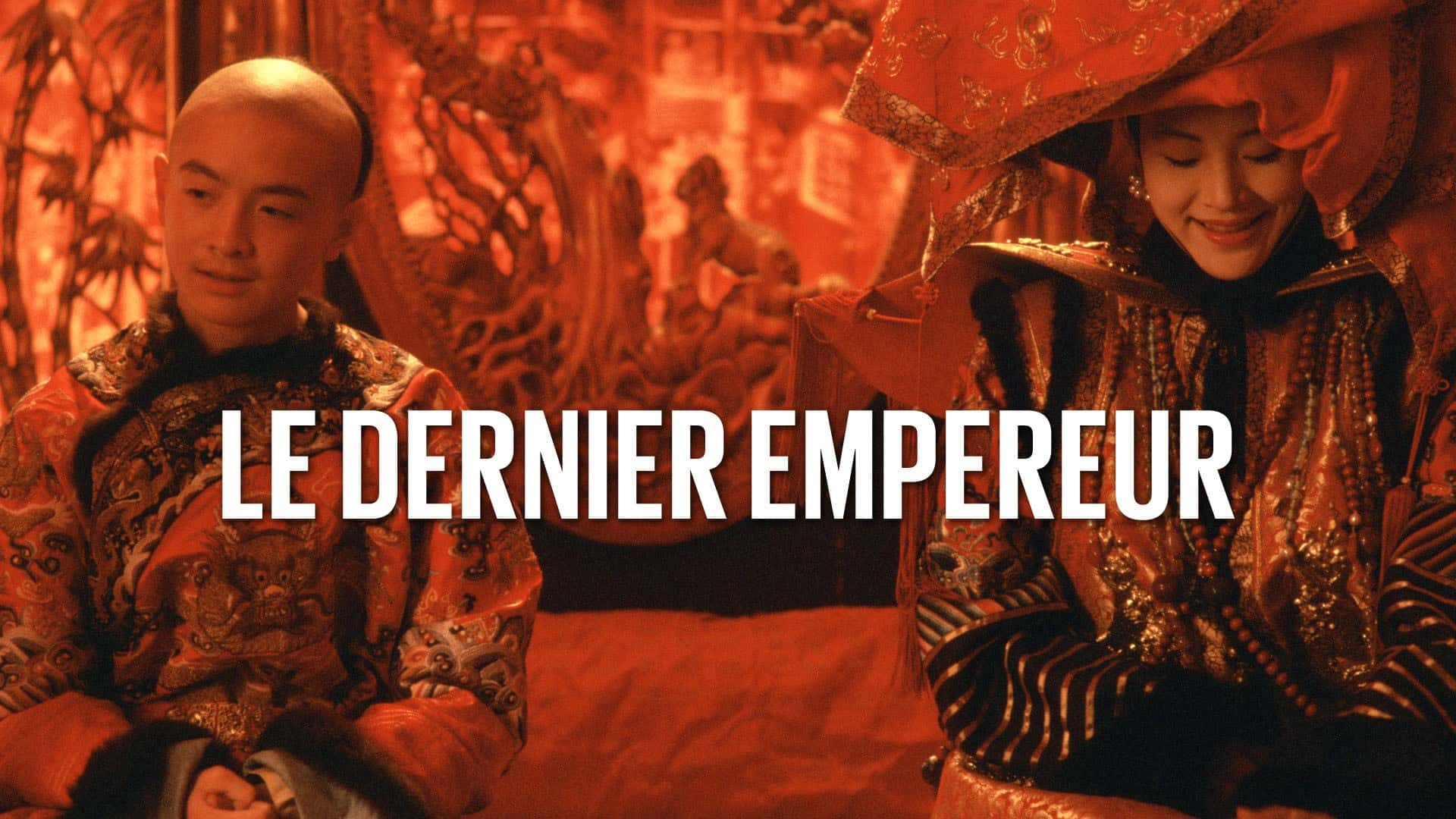 NRJ Play
NRJ Play
32. A Fair Bargain
The conditions of Pu Yi’s abdication also covered his “favorable treatment.” Pu Yi would keep his title with all the pomp and ceremony that came with it. The Republic of China promised to give him an annual allowance, ensure his secure protection, and let him reside in the Forbidden City.
31. Mother Loveless
During Pu Yi’s childhood, he officially had five “mothers.” These women were former imperial concubines, and they had significant control over Pu Yi’s life and isolation. It was allegedly through their actions that Pu Yi was separated from his biological mother until he was 13 years old. They also sent away his wet-nurse when he was 8, arguing that to still be breastfed at that age was unhealthy. Since both his mother and wet-nurse were the only true mother figures in Pu Yi’s life, he grew up despising these “mothers,” later claiming that “Although I had many mothers, I never knew any motherly love.”
30. So Close, Yet So Far
Pu Yi’s final resting place—which was acquired thanks to the efforts of his widow, Li Shuxian—is Hualong Imperial Cemetery. It is close to the Western Qing Tombs, where lie four emperors, three empresses, and dozens of princes and princesses from Pu Yi’s dynasty.
29. New Teacher
On March 3, 1919, Pu Yi’s new tutor, Sir Reginald Johnston, arrived at the Forbidden City. As a British gentleman, he began to represent everything which Pu Yi found admirable and fascinating. For his part, Johnston attempted to alter and improve Pu Yi’s demeanor and behavior. It was Johnston who introduced Pu Yi to ideas touted by the intellectual scene in China.
28. And Not a Moment Too Soon
Before Johnston’s arrival, Pu Yi had only been taught the classic works associated with Confucianism. He later reflected that he had “learnt nothing of mathematics, let alone science.” His education was so lacking that he couldn’t even find Beijing on a map!
27. The Death of Boredom
In the role of Pu Yi’s tutor, Sir Reginald Johnston was instrumental in introducing the young emperor to new technology. One of these technologies was the telephone. Having spent most of his life inside the Forbidden City, Pu Yi was obsessed with the telephone’s power of communication. He would reportedly call random numbers just to hear the different voices coming through. Johnston also introduced Pu Yi to movies, leading Pu Yi to arrange for a film projector to be installed inside the Forbidden City in imitation of a cinema.
26. New Experiences
Due to the culture and the traditions around the emperor of China, nobody had given Pu Yi any sex education lessons before his wedding night, which included not just his wife, but also his concubine. Like any other inexperienced teenage boy, Pu Yi was under immense pressure with little to no knowledge of what to do. Allegedly, the emperor ended up leaving the bedroom, leaving his wife and concubine to use the royal bed themselves. To be fair to Pu Yi, that’s hardly the worst story we’ve heard about someone’s first time!
25. Is it a Bird? Is it a Plane?
In 1917, Zhang Xun tried to reverse Pu Yi’s abdication and restore him to power. This led to serious conflict with the republican factions in China. In fact, it led to “the first aerial bombardment ever in East Asia” when a plane flew over the Forbidden City and caused some minor damage with a dropped bomb. No doubt the 11-year-old Pu Yi had some question about what the heck was going on!
24. An Accidental Ulterior Motive
On September 1, 1923, the Japanese cities of Tokyo and Yokohama were devastated by the Great Kanto earthquake. Pu Yi donated highly valuable antiques from the Forbidden City’s treasures to help pay for the relief. He was later met by several Japanese delegates who personally thanked him for his actions. However, the delegates ended up reporting on Pu Yi’s character, recommending that this Chinese emperor without power could prove useful for Japanese interests in the future.
23. Old Family
Pu Yi was the 12th and final emperor in the Qing dynasty. This dynasty had first been established in 1636 and had first begun ruling China in 1644!
22. I Can See Clearly Now
Pu Yi was notoriously short-sighted—literally, not just figuratively—but the idea of an emperor wearing glasses went against every custom and tradition. It wasn’t until the efforts of his tutor, Sir Reginald Johnston, that Pu Yi finally flouted tradition and put on some specs.
21. Make Your Order
In early 1922, when Pu Yi was 16 years old, he was given several photographs of potential brides from aristocratic families. Pu Yi initially chose a young woman named Wenxiu, but it was then explained to him that Wenxiu’s status meant that she could only be his concubine—which makes us wonder why she was included in the first place.
 glitchtale.wikia
glitchtale.wikia
20. You May Meet the Bride
Pu Yi’s betrothal to Gobulo Wanrong was announced on March 15, 1922. Wanrong was the daughter of a very wealthy aristocratic family in Manchuria and had never met Pu Yi before the wedding ceremony.
19. Recycle, Reuse
As a child, Pu Yi was customarily given far more food than he could ever possibly eat with his meals; most of it was actually sent away rather than eaten. Additionally, Pu Yi was known to wear clothes just once and then replace them instead of just washing the clothes. However, the attendants in his service would find ways to make use of this excess food and clothing. They would eat whatever Pu Yi did not, and they would sell his former clothes on the black market.
18. Where to Turn? Where to Go?
In 1924, Pu Yi was turned out of the Forbidden City thanks to a military coup of Beijing carried out by Feng Yuxiang. Feng wished to get more popular support by repealing the terms for Pu Yi’s abdication. On November 5, 1924, Pu Yi’s title was taken away, he was reduced to the status of a private citizen, and he was given three hours to leave the Forbidden City. After staying in his father’s residence for a few days, Pu Yi was advised by Sir Reginald Johnston to turn to the Japanese for support. His decision to follow Johnston’s advice would shape his life more radically than anyone could have predicted.
17. It Was a Bad Time
During the 1920s, Pu Yi and his entourage made their residence in Tianjin, a city in northern China, part of which had been conceded to Japanese control. Setting up his court with Japanese support, Pu Yi’s personal life was falling apart. Wenxiu, his concubine, divorced him, while his wife, Wanrong, devolved into screaming matches as she herself felt restricted by the symbolic title which denied her the chance to go out dancing and have fun. She eventually turned to opium, which Pu Yi did nothing to stop.
16. From One Meaningless Title to Another
While under control of the Japanese, Pu Yi agreed to become the ruler of the state of Manchukuo, a state in northern China which was being used by Japan in their propaganda for creating a superior state in East Asia. While he’d previously been a ruler without power in Beijing, Pu Yi was now a puppet ruler who was kept in captivity by his supposed protectors. He remained in Manchukuo from 1932 until the end of the Second World War.
 Dead Country Stamps and Banknotes
Dead Country Stamps and Banknotes
15. The Mad Emperor
Being a virtual prisoner of the Japanese, coupled with the knowledge that his subjects despised him, caused Pu Yi to give full reign to his cruelty. He would regularly order his servants to be beaten on the most minor of excuses, even as his situation was said to drive Pu Yi “to the brink of madness.” To be fair, after an upbringing like he’d had gotten, can we be so surprised that he turned out so unstable?
14. Please Reconsider!
While he was still a child emperor, Pu Yi allegedly came up with a rather horrifying prank of providing one of his attendants with a cake, only for iron filings to secretly be inside said cake. Pu Yi wanted to see the reaction of the unfortunate attendant when he took a bite of this “reward.” Only the persuasions of his wet-nurse, Wang Wen-Chao, caused him to abandon the plan.
13. You Just Made Yourself a Powerful Enemy!
In 1928, while Pu Yi was still in Tianjin, he found out that a Chinese faction called the Kuomintang had embarked on a great expedition to reunify China under one power, and they had taken Beijing. While there, the Kuomintang soldiers raided the tombs of the Qing emperors and defiled the corpse of the Empress Dowager Cixi. Pu Yi never forgave them for this insult to his dynasty, and personally held Chiang Kai-Shek—whom the US would later tout as the legitimate ruler of China while he lived in banishment on Taiwan—responsible for those actions.
12. You Only Love Once
In 1962, Pu Yi met Li Shuxian, a former hospital worker. They were married a year later, making it Pu Yi’s fifth and final marriage. She remained married to him until his death, after which she wrote memoirs about her time with him to support herself. For his part, Pu Yi considered his marriage to Shuxian to be his only real marriage, declaring that the first ones “were only there for show.”
 china news
china news
11. The Plot Thickens
After the Second World War led to the surrender of Japan, Pu Yi was taken prisoner by Soviet troops who later turned him over to the Chinese Communist party when they had taken control of China. There was a LOT of fighting and power struggles during those years, far too much for us to detail here. Unlike how the Chinese and the Japanese had previously seen him for what he wasn’t, the Chinese Communists saw him for what he could be; by that point, it was common knowledge that the Soviet leader Lenin had the Russian royal family killed and the Chinese Communists wanted to show their superiority by turning Pu Yi to their way of thinking. This began a re-education process which lasted years.
10. I Want to Break Free!
On June 4, 1922, just before his first marriage, Pu Yi attempted to escape the Forbidden City and go to Oxford, which was his dream after all that he’d learned from Sir Reginald Johnston. He planned to renounce his title and go be an Oxford student. Ironically, the person who stood in his way was Johnston himself, who refused to help him and blocked him from carrying out his plan.
9. The Epiphany of a Lifetime
During much of the ‘50s, Pu Yi was kept in the Fushun War Criminals Management Center as part of his re-education. Bullied by the other prisoners, Pu Yi did earn the respect of the warden, Jin Yuan. Jin pushed for Pu Yi to understand the pain that the Chinese people had suffered at the hands of the Japanese, who had always ensured that Pu Yi live in comfort. Jin also tried to have Pu Yi realize his own role in hurting others while he was emperor. Jin even arranged for Pu Yi to meet with a former concubine who verbally attacked Pu Yi for having treated her as nothing but a sex object.
For the first time in his life, arguably, Pu Yi was faced with shame and guilt, to the point that he considered suicide over how he had lived his life while so many others had suffered so badly. He reflected that while he’d never asked to become the emperor, he wished he could go back to all those people whom he’d treated so cruelly and beg their forgiveness.
8. And Action!
While he was being held in the Fushun War Criminals Management Center, Pu Yi managed to find something which he enjoyed: acting. Pu Yi would act in plays, sometimes having so much fun that he would ad-lib more lines. In a moment of great irony, Pu Yi once acted in a play where his character has to kowtow to a portrait of the Emperor of Manchukuo—in other words, himself! Given that he’d spent his life acting like things he wasn’t, we’re not surprised that he took a shine for the stage.
7. Hard Times
Unlike many other enemies of Mao Zedong’s government, Pu Yi was not publicly humiliated during the Cultural Revolution. He was, however, deprived of many privileges, as well as his salary and food rations.
6. Emperor Joffrey?
Of course, when a child is constantly treated like he is a divine being, you can imagine that he isn’t the most empathetic person in the world. By the time he was seven years old, Pu Yi developed a great enjoyment out of having his attendants severely beaten and punished for any reason.
5. The Emperor is Dead
Pu Yi died on October 17, 1967, in Beijing, the same city where he had been born. He succumbed to heart disease and kidney cancer at the age of 61 years.
4. A Changed Man
In the years after his release from prison, Pu Yi became known for his humility and acts of kindness. He regularly made sure that he would be the last person to get on a bus, to the point where he’d actually sometimes miss the chance to board before the bus took off! On a more specific occasion, he accidentally struck a woman while riding his bicycle. For every day that she spent in the hospital, Pu Yi would visit her, never failing to bring flowers.
 NewCREEations
NewCREEations
3. For the Realm
During his time living in the Forbidden City, the majority of Pu Yi’s attendants were actually eunuchs, in keeping with the Chinese traditions and culture. Sadly, we have no record of any of them serving as a bald advisor to the Emperor on what was best for the realm. These eunuchs were sworn to complete and unconditional obedience, which the child emperor delighted in testing, even having one of them eat dirt. Pu Yi later referred to them as his “slaves,” but he also added that for better or worse, they were his “earliest teachers.”
 Pinterest
Pinterest
2. Sibling Rivarly
Given that Pu Yi was basically an only child surrounded by servants in an isolated location, it was eventually decided that his brother, Pujie, should join him to act as a buddy—or cellmate, depending on how you view it. However, the plan nearly fell apart when Pu Yi reacted with fury at the sight of his brother. Pujie was wearing yellow clothes when he arrived, which Pu Yi thought was a privilege that only the emperor had. He had to be reminded that any member of the Qing family could wear yellow. No doubt that was a great way to break the ice!
1. A Happy Ending After All?
Reportedly, and as it’s represented in The Last Emperor, Pu Yi finally found real happiness in his life when he was employed as a gardener in the last years of his life. Not only that, the movie was actually spot-on in showing the elderly Pu Yi visiting the Forbidden City as a tourist. It was reportedly one of the first things he did when he was released from his re-education process. He even openly spoke to the other tourists about how he’d lived in the Forbidden City as a youth and spoke of the various artifacts which he’d handled or used. We honestly wish we could have been there to hear this man talk about his former life like that.
 Grid.ID
Grid.ID

